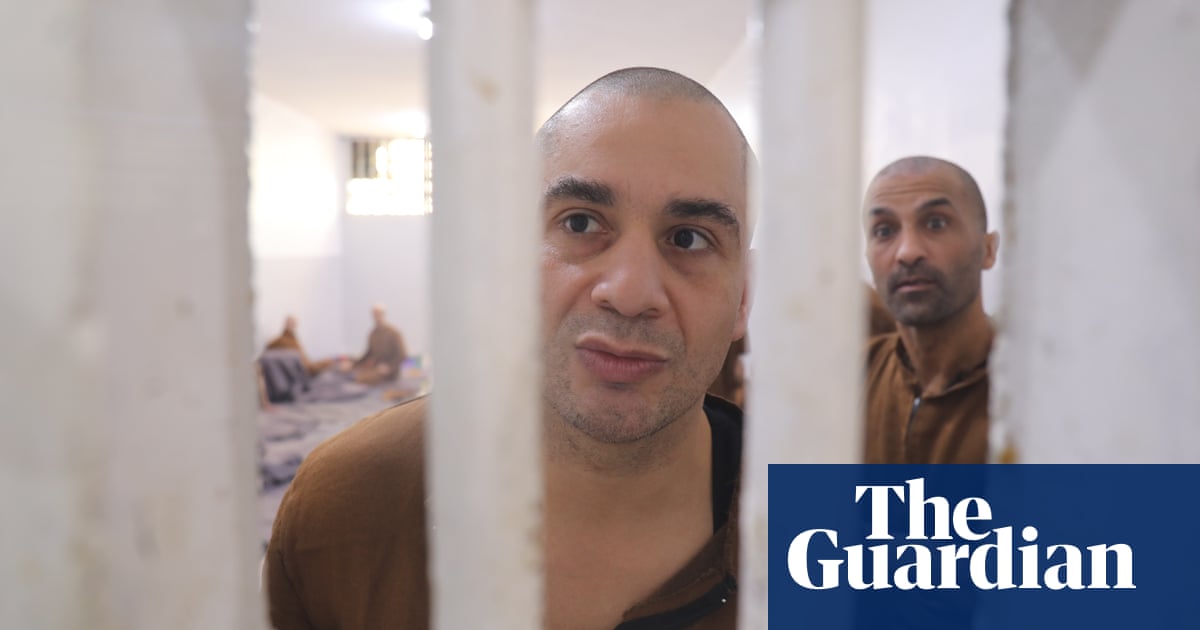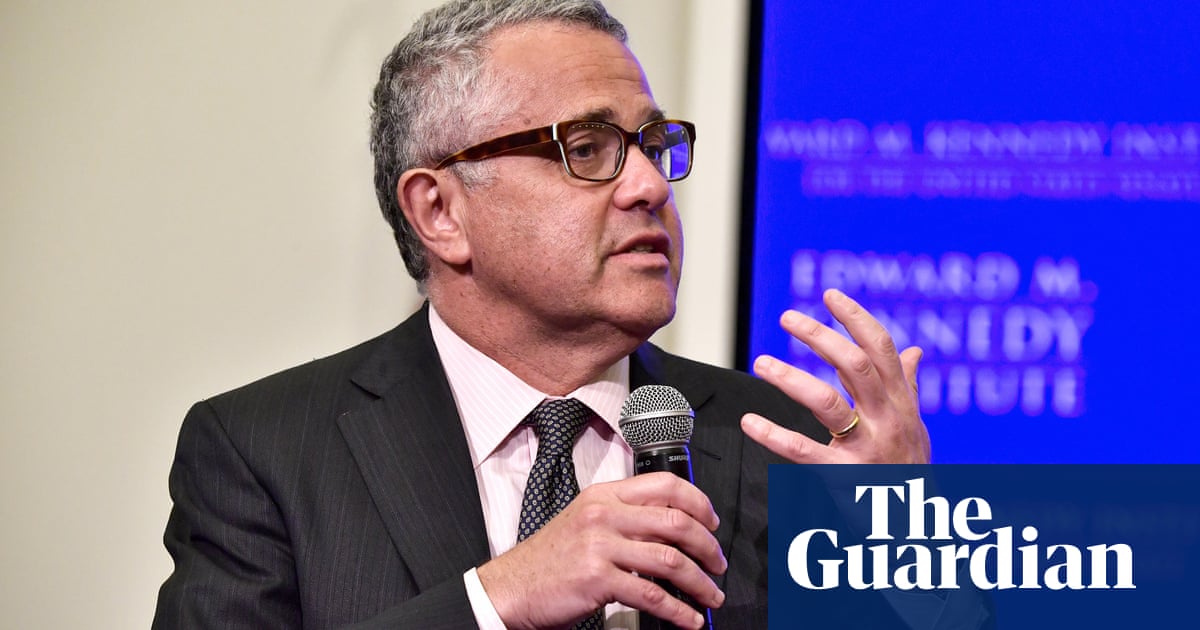Donald Tusk’s government in Poland is gearing up for a crucial presidential election next year, after a first year in office that has been marked by clashes with the current president, Andrzej Duda, as well as splits within the ruling coalition.
Tusk took office as prime minister last December, ending eight years of rule by the populist Law and Justice (PiS) party. The change of government prompted celebrations from progressive Poles and relief in Brussels, where PiS had put Poland on a course of conflict with European bodies.
But the PiS-aligned Duda still had more than a year left on his term and has been able to veto legislation the government puts forward. That turns next May’s vote into essentially a referendum on whether Poles want Tusk’s government to be able to rule freely or not.
“We are still in an extended election cycle, and the presidential vote will be absolutely make or break for the government,” said Wojciech Przybylski, of the Visegrad Insight thinktank in Warsaw. “Depending on the result, the government will be able to effectively govern and reform, or it won’t.”
On Saturday, Tusk’s Civic Coalition announced that the liberal mayor of Warsaw, Rafał Trzaskowski, would be its candidate in next spring’s vote, after he won a primary inside the party against the foreign minister, Radosław Sikorski.

“I have a very strong mandate and a lot of energy, determination and courage to beat PiS,” Trzaskowski said on Saturday. He narrowly lost the last presidential election to Duda in 2020, though faced a situation where many of the levers of state and the public media were stacked in Duda’s favour.
Poland remains deeply polarised, and next year’s vote is also expected to be close-run. Other candidates are expected to stand in the vote, but a second-round runoff is likely to be required and will most probably be between Trzaskowski and the PiS candidate.
At a ceremony in Kraków on Sunday afternoon, PiS announced that its candidate would be Karol Nawrocki, who previously headed a government history institute. The party’s powerful chair, Jarosław Kaczyński, decided on Nawrocki after pondering several possible options; Duda has served two terms and cannot stand again. Trzaskowski contrasted the PiS process with the brief but energetic primary campaign he fought with Sikorski. “In PiS, one vote matters, while we value every vote, and that’s how we differ,” he said.

Tusk won last year’s vote on a platform that the election was the “last chance” to save Poland and claiming that another PiS term would mark the end of democracy in the country – succeeding with a template to beat populists that has often failed to work, notably in the US last month.
In its first months, the new government made a few bold steps. The new justice minister, the respected law professor and rights defender Adam Bodnar, made enough positive noises about improving the rule-of-law climate in Poland for Brussels to unblock billions of euros of funding frozen under the previous government. A new management took over at public television – which had functioned as a propaganda wing of the PiS government and spewed hate about migrants, LGBTQ+ people and other minorities – and promised to turn it into a neutral public broadcaster.
But Tusk has managed to achieve precious few of the ambitious programme of 100 tasks he had set for the first 100 days of government. Partly this is down to Duda, as Tusk’s coalition lacks the three-fifths of parliamentary votes that would be required to overturn his presidential veto.
But the legislative paralysis cannot be blamed entirely on the president. Tusk’s coalition, made up of a broad spectrum from leftists to staunch social conservatives, has also found it hard to find agreement within its own ranks. This has been most visible – and most disappointing for progressive Poles – when it comes to abortion rights, a huge mobilising issue for women and many young Poles.
Several different draft bills have floated around parliament over the past year, but in an embarrassing moment for Tusk’s government, one that had been expected to pass in July was defeated by three votes, with the more conservative MPs from the ruling coalition joining with PiS to vote against it. Earlier this month, MPs finally voted to send the bill forward, and it is now under review by a parliamentary committee, where further revisions are expected.
The bill makes limited changes to the law – decriminalising abortion up to 12 weeks, but not legalising it, and restoring exceptions to the total abortion ban, for cases in which the mother’s life is at risk or there are severe foetal abnormalities. Under PiS, these exemptions were removed from the law, leading to huge protests.
The failure to liberalise the abortion law and also to make good on a promise to introduce same-sex civil partnerships has made many liberal Poles angry.
after newsletter promotion
“People are really, really disappointed, especially in bigger cities,” said Natalia Broniarczyk, who is part of the Abortion Dream Team organisation, which helps Polish women access safe abortion, and is also an adviser to the parliamentary committee working on the draft abortion law. She said the bill had been extremely watered down. “Their goal is to convince very conservative MPs to vote for this bill and they are willing to concede on almost everything,” she said.

The education minister, Barbara Nowacka, said that “as a citizen and as a feminist” she was angry that the current parliament was not able to pass more meaningful legislation on abortion, but as a politician, she had to concede that the Polish public had voted for a parliament where conservative politicians had a blocking vote.
Still, she said the change of tone in the debate at least counted for something. “Although a still-restrictive abortion law exists, the procedures are so much more relaxed and changed that women are much more secure. It is not satisfying, but it’s still a little bit better,” she said, in an interview at the ministry building in central Warsaw.
Nowacka said she would have liked the government to have achieved more in its first year, but pointed to steps taken by her ministry to reform the education sector. The government offered an immediate 30% pay rise to teachers after taking office, and has proposed a revision of parts of the school curriculum.
Amid opposition from some rightwing Christian groups, her ministry has announced that sex education will be reintroduced to the curriculum, as part of broad “health education” classes that will also tackle mental health issues. Religious classes run by the Catholic church will be cut from two hours to one a week. “Society is getting more and more secularised,” she said, adding that even 30% of PiS voters supported cutting the religious lessons.
Many within Tusk’s party said progressive policies were likely to take a back seat in the presidential election campaign, however. With war in neighbouring Ukraine, Tusk has been keen not to cede ground to PiS on security matters. He has increasingly turned to rightwing rhetoric on migration, mirroring a shift in the debate on the issue across Europe. Last month, he even proposed that Poland would temporarily suspend the right to claim asylum for people attempting to cross from Belarus, a major migration route into Europe.
“Nobody wants abortion to be the focus of the campaign; it will be on security and economy,” said the senator Tomasz Grodzki. He added that creating this kind of broad appeal would ensure that Trzaskowski won over 50% of the vote and could support the government’s agenda.
“It will be a crucial campaign for the future of Poland. We have to win if we want to finalise our return to democracy,” Grodski said.

 2 months ago
48
2 months ago
48













































